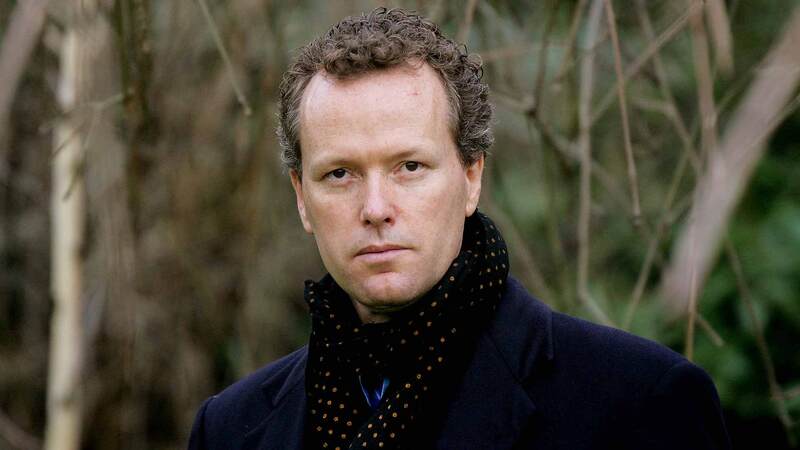You are viewing your 1 free article this month. Login to read more articles.
Hachette UK reports strongest ever year with record sales in 2020
Hachette UK c.e.o. David Shelley has hailed the firm's strongest year ever with record book sales in 2020, although parent company Lagardère saw revenue fall 38% year on year.
Lagardère's annual financial report for the year ending 31st December 2020 showed Hachette UK's revenue up by 9.9% owing to the large number of bestsellers. There was also “vigorous” growth in e-books and audio, partly attributable to shop closures.
Shelley said, despite the unavailability of some Nielsen data during last year's lockdowns, the firm estimated its market share rose to 13.7% in 2020, up from 12.2% the year before. It also had 538 appearances in the Sunday Times Bestseller List, a 71% increase year on year, and 19 number one bestsellers.
Big fiction books included The Ickabog by J K Rowling (Little, Brown Books for Young Readers), Midnight Sun by Stephenie Meyer (Atom), Where the Crawdads Sing by Delia Owens (Corsair), Troubled Blood by Robert Galbraith (Sphere), A Song for the Dark Times by Ian Rankin (Orion), Hamnet by Maggie O’Farrell (Tinder Press), American Dirt by Jeanine Cummins (Tinder Press), The Silent Patient by Alex Michaelides (Orion), A Time for Mercy by John Grisham (Hodder & Stoughton) and The Witcher series by Andrzej Sapkowski (Gollanz). In non-fiction, Shelley praised the performance of My Life in Red and White by Arsene Wenger (W&N), Clanlands by Sam Heughan and Graham McTavish (Hodder & Stoughton), Once Upon A Tyne by Ant and Dec (Sphere), Women Don’t Owe You Pretty by Florence Given (Cassell) and Greenlights by Matthew McConaughey (Headline).
He said: “We continued to grow and diversify our business, from the acquisition of Laurence King Publishing to the launch of four exciting new imprints: Phoenix Books (Orion), Greenfinch (Quercus), Thread (Bookouture) and Hodder Studio (Hodder & Stoughton). We distributed 65 million books through our state-of-the-art Hely Hutchinson Centre. At the end of the year, we also signed a three-year partnership with the National Literacy Trust, putting our inclusive Reading Planet scheme at the heart of a new programme to help disadvantaged children develop life-changing literacy skills.
“More people than ever before have turned to books for solace, entertainment, information and learning during the pandemic, and it is our mission to try to retain these readers, and recruit new ones, in the years to come.”
For Lagardère Publishing as a whole, revenue was ‚Ǩ700m in the fourth-quarter of 2020, a rise of 3.2% on a consolidated basis and 4% like for like, “led by positive sales trends in the United Kingdom and the post-lockdown catch-up effect in France in December”. Revenue totalled ‚Ǩ2.4bn for the year, down 0.4% on a consolidated basis and down 0.8% like for like.
In France, revenue fell 4.3%, blamed on a “marked decrease” in sales during the first-half lockdown and a smaller impact from curriculum reform versus 2019. However, general literature reported growth.
For the US, revenue was up 3.9%. The company said this was powered by books including Stephenie Meyer’s Midnight Sun and Nicholas Sparks’ The Return, The Witcher series and publications linked to the Black Lives Matter movement.
E-books accounted for 9.5% of total Lagardère Publishing revenue in 2020 versus 7.7% in 2019, while digital audiobooks represented 4.3% of revenue versus 3.4% in 2019. It reported ‚Ǩ246m million in recurring EBIT, up ‚Ǩ26m year-on-year.
However, for Lagardère as a whole, revenue was ‚Ǩ4.4bn in 2020, down 38% like for like. Group recurring EBIT was a negative ‚Ǩ155m versus a positive ‚Ǩ378m n 2019. Things improved in the second half, with group recurring earnings before interest and taxes (EBIT) at a positive ‚Ǩ63m, a ‚Ǩ281m improvement on the first-half figure. The company said this reflected cost-cutting efforts undertaken since the outset of the health crisis. In publishing, that had included cutting payroll, sales and marketing expenditure.
Looking to the future, the company said the positive impact on its publishing sales was expected to diminish as cultural and leisure venues reopened. “The favourable mix effect in 2020, led by digital media sales, is expected to diminish and slightly affect profitability in 2021,” it said.


















